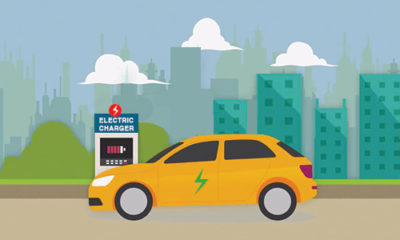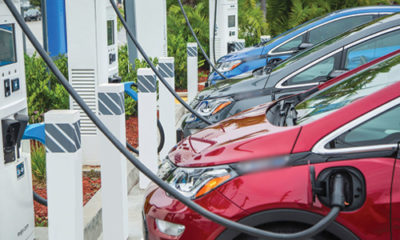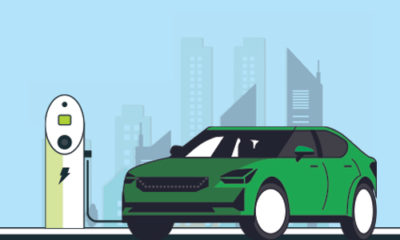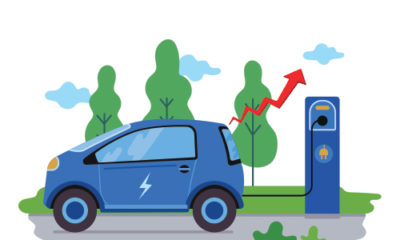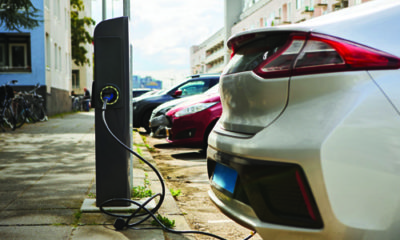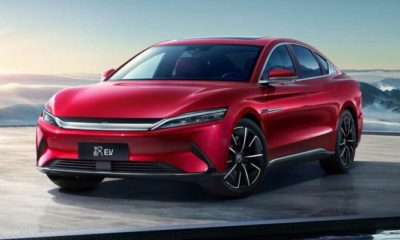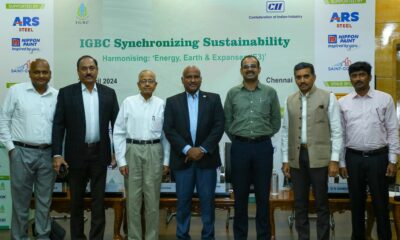News
Key takeaways of Gadkari address to auto industry


Source: https://www.energybite.co.in/blog-post/key-takeaways-of-gadkari-address-to-auto-industry/
Union Minister Nitin Gadkari made some significant remarks at a recent virtual conference on automotive aftermarket organised by the Confederation of Indian industry (CII). Besides making a major announcement about the Government’s plan to set up charging kiosks at all fuel stations across the country, the minister urged the industry to be quality-centric, go for innovations and reduce its dependence on imports for auto parts.
The two-day virtual conference on automotive aftermarket with the theme ‘Seizing Opportunities in New Normal’, on November 23 and 24 had some important take automotive aftermarket aways for the industry.
Held on the side-lines of the CII’s go-to event Auto Serve 2020, the conference focused on the latest trends, innovations, start-ups, skill development, R&D, equipment and technologies in the automotive aftermarket sector. It provided a platform to various stakeholders to learn and adopt the best practices and deliberate on the opportunities to build a strong growth trajectory for the automotive aftermarket industry.
Addressing the conference online, Union Minister of Road Transport and Highways & MSME Nitin Gadkari focused on the e-highway plan to transform India into a global automobile manufacturing hub in the next five years. He also stated that the Government was inclined towards growing an ecosystem to accelerate the uptake of electric vehicles in the country.
- To strengthen EV infrastructure, said Gadkari, the Government is planning to install at least one charging kiosk at each of the 69,000 fuel stations across the country.
- The Government, he said, was also planning to build an e-highway on Delhi-Mumbai Expressway. E-highways will induce consumers, who have the range-anxiety, to switch to EVs.
- The minister also urged the automobile industry to move away from a cost-centric approach to quality-oriented one to serve the needs of the customers and the society.
- Gadkari also urged the auto industry to focus on developing and producing all parts locally instead of relying on imports as it will be beneficial for all stakeholders in the future.
To strengthen EV infrastructure, said Gadkari, the Government is planning to install at least one charging kiosk at each of the 69,000 fuel stations across the country. The numbers may not look huge on paper but it will definitely give a boost to the EV market in India. The minister also insisted the automobile industry to come together in curbing vehicular pollution.
Gadkari’s address also highlighted the various measures the Government had undertaken to promote the sale of electric vehicles. Prominent among these are reduction in GST to 5 per cent and allowing delinking of battery cost of two- and three-wheelers from vehicle cost as it accounts for nearly 30 per cent of the total cost. The Government, he said, was also planning to build an e-highway on Delhi-Mumbai Expressway. E-highways will induce consumers, who have the range-anxiety, to switch to EVs.
The minister also urged the automobile industry to move away from a cost-centric approach to quality-oriented one to serve the needs of the customers and the society. “I have been telling this to the Indian manufacturers. Don’t be cost-centric and you should be quality-centric. Even a poor man in this country is keen to buy a quality EV irrespective of his economic status. So the industry should improve quality while finding the ways and means to reduce the cost at the same time,” he said.
There was also a great deal of discussion on the innovations and changes that the Indian auto market needs. The auto sector should look at building double-decker buses to cater the needs of Indian market, suggested the minister.
Gadkari also urged the auto industry to focus on developing and producing all parts locally instead of relying on imports as it will be beneficial for all stakeholders in the future. For India to become a global player in auto manufacturing, the local auto parts industry needs to be developed, he said. Instead of importing auto parts from different countries, these parts should be locally sourced. A lot of R&D needs to be done in the field of alternative and less-polluting fuels like hydrogen, compressed natural gas (CNG), liquified natural gas (LNG) and electricity.
Ending his address on a positive note, the minister said, “I am fully confident that the future of this industry is very bright. The only thing is, you have to be cost-effective, import-substitute, pollution- free and indigenous.”
-



 News4 weeks ago
News4 weeks agoKW Delhi 6 Mall Onboards New Brands
-



 News4 weeks ago
News4 weeks agoManasum Senior Living Launches IKIGAI GOA, A Senior Living Community in North Goa, in collaboration with Prescon Homes
-



 News4 weeks ago
News4 weeks agoCommercial Realty Gets Tech Savvy: Fast Construction, Enhanced Convenience
-



 News3 weeks ago
News3 weeks agoGodrej Properties Sells Rs 3k cr+ Homes of Godrej Zenith, Gurugram, within 3 days
-



 News3 weeks ago
News3 weeks agoRBI’s Status Quo on Key Policy Rates to Help Maintain the Real Estate Growth Momentum, Say Industry Stalwarts
-



 News2 weeks ago
News2 weeks agoOlive Announces Dhruv Kalro as Co-Founder
-



 News1 week ago
News1 week agoNoida’s High-Rise Societies Face Multiple Challenges Despite Rapid Urban Growth
-



 News3 weeks ago
News3 weeks agoGodrej Properties Sells 5000+ Homes of Rs 9.5 cr in Q4FY24, Bookings up 84% YoY







